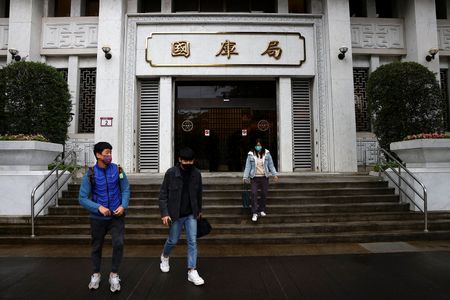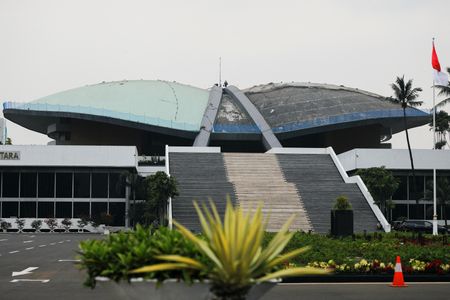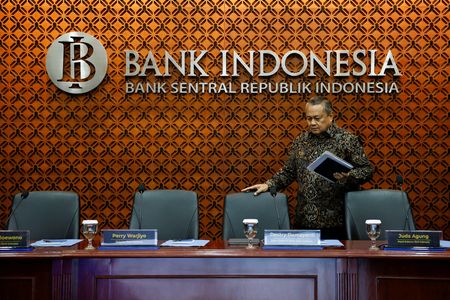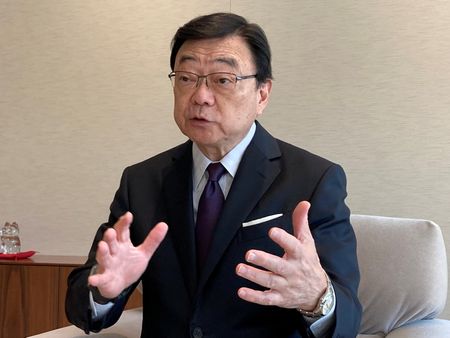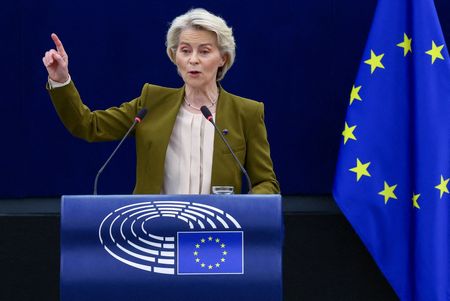By Liang-sa Loh and Faith Hung
TAIPEI (Reuters) – Taiwan’s central bank on Thursday raised its economic growth forecast for the year, hailing booming exports, but warned that the impact of U.S. tariffs could be damaging enough to prompt a change in monetary policy going forward.
Taiwan’s role as a major producer of advanced semiconductors powering the AI boom for companies like Nvidia has fuelled its economy this year.
“This year’s economic growth has been very special. Next year will see moderate growth, but to be honest, (U.S. President Donald) Trump’s policies have made global forecasting extremely difficult,” governor Yang Chin-long told reporters.
The central bank left the benchmark discount rate at 2% at a quarterly meeting, in a unanimous decision and in line with predictions from a Reuters poll where 30 of 32 economists forecast no change.
It raised its 2025 estimate for economic growth to 4.55%, from a previous forecast of 3.05% given in June, but said it saw it slowing to 2.68% next year.
The bank said in a statement that it would closely monitor developments in U.S. tariffs, as well as geopolitical risks.
Taiwan’s economy grew 4.59% in 2024, buoyed by robust exports, including high demand for artificial intelligence applications.
Goods from Taiwan are subject to a 20% U.S. tariff, as part of President Donald Trump’s sweeping measures targeting imports from across the globe, though Taipei remains in talks with Washington to get a better deal. Semiconductors are so far excluded from the tariffs.
“Should these measures prove unfavourable, our competitive edge could suffer significant decline,” Yang said, referring to tariffs. “Consequently, our monetary policy must be adjusted accordingly.”
The central bank trimmed its consumer price index forecast for this year to 1.75%, down from its June forecast of 1.81%. For next year it said it saw inflation slowing further to 1.66%.
Taiwan’s rate decision came a day after the U.S. Federal Reserve, goaded by the risk of rising unemployment, reduced interest rates for the first time since December.
(Reporting by Liang-sa Loh and Faith Hung; Editing by Ben Blanchard, Christian Schmollinger and Andrew Heavens)

